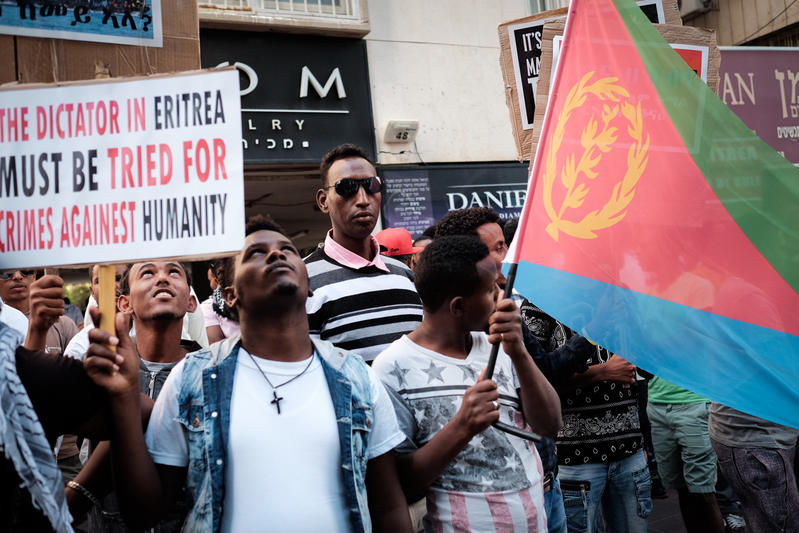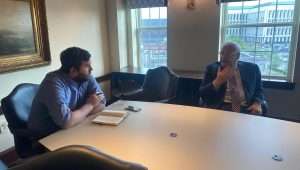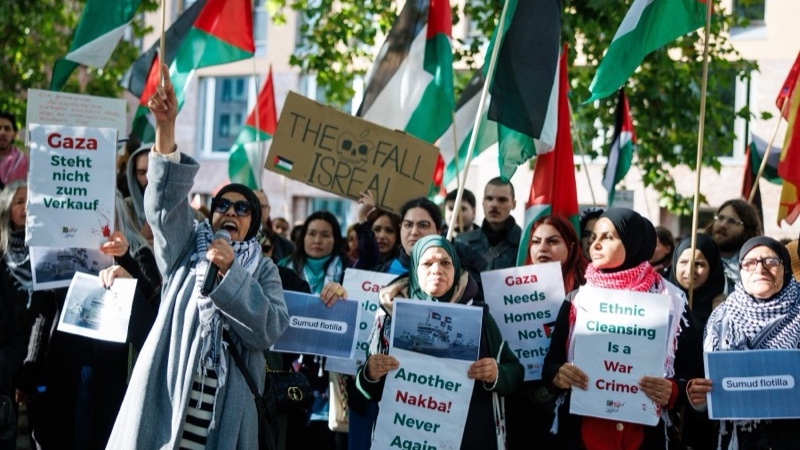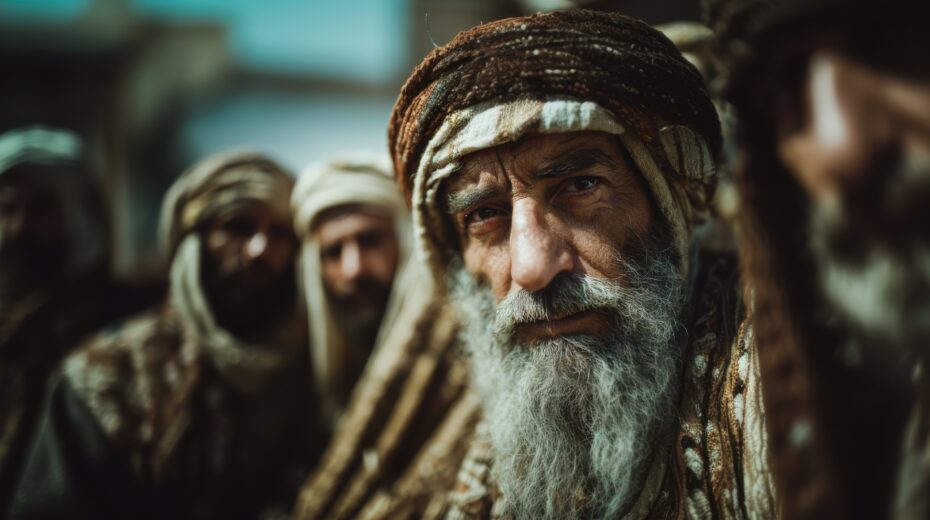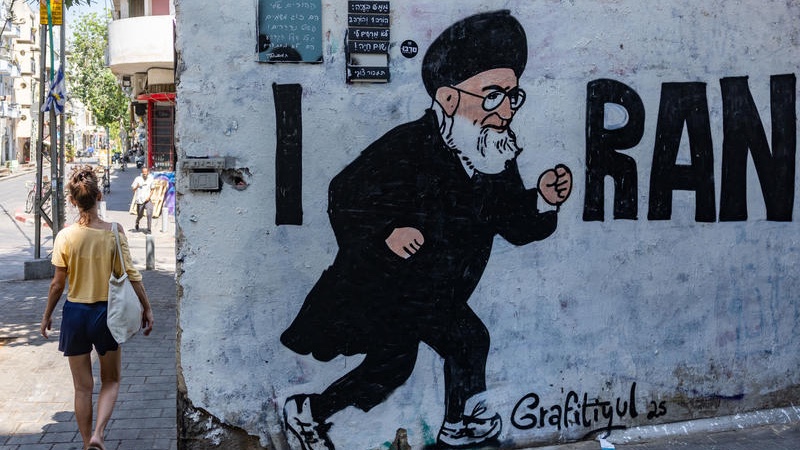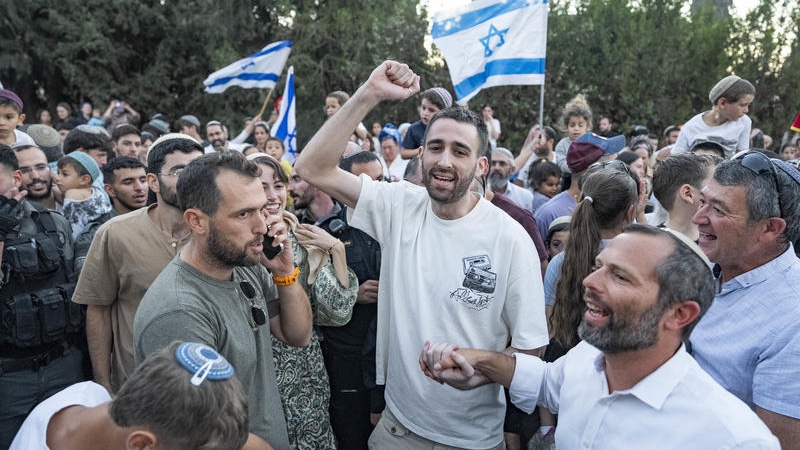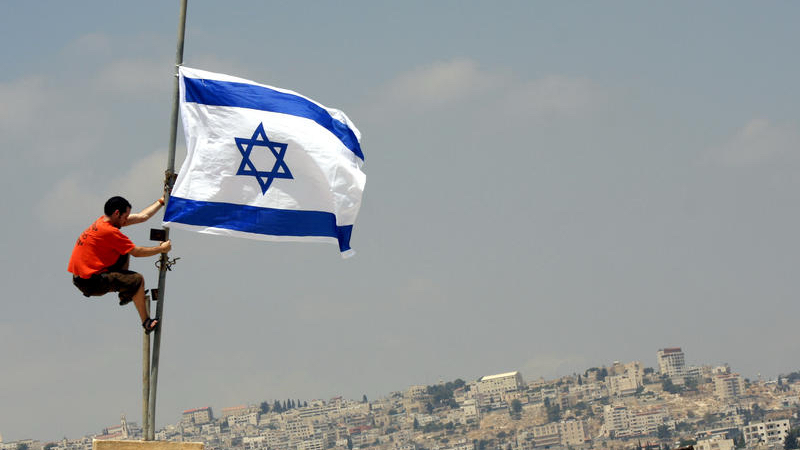(JNS) While the world’s eyes are on Gaza, people who would otherwise care have been made blind to the plight of black Christians persecuted across Africa. There are approximately 15 African countries where jihadists—ideological cousins of Hamas—oppress indigenous Christian populations.
In countries like Nigeria, jihadist assaults by Boko Haram and Fulani are almost exact analogues to the Hamas pogrom in Israel on Oct. 7, 2023. Armed groups storm African villages there, slaughter, torture and burn innocent villagers, and rape and kidnap women and girls as sex slaves. Americans know a bit of this because Michelle Obama, in an instinctive reaction to a mass kidnapping of Nigerian school girls by Boko Haram jihadists in April 2014, created a campaign, “#BringBackOurGirls.” Sadly, she suddenly abandoned the effort soon after she launched it (likely for political reasons), though her decision has never been explained. Nigerians suffer Oct. 7-like attacks almost weekly.
The case of Eritrea is particularly instructive, as it demonstrates what can happen to the freedom of religion, conscience and expression when the far-left comes to power, enabled by an Islamic majority. In Eritrea, an Islamist alliance with Communists may mirror what many fear may come to pass in Europe as the “Red-Green Alliance” menacingly grows.
The area of what is today Eritrea has a long history of Christianity, which remained the dominant religion in the country despite the arrival of Islam in the seventh century. Islamic invasions in the 16th century—conducted by Ahmad Gragn, the Muslim leader of the sultanate of Adal, which is modern-day Somalia—resulted in the death of thousands, including many Christian church leaders. The International Christian Concern reports that following these attacks, Islam grew significantly in the region, leaving the population in the following years split nearly half Christian and half Muslim.
Eritrea had been a federal component of Ethiopia, a majority-Christian country, when the Eritrean Liberation Front (ELF), a Muslim-led guerrilla force, launched a “holy war” that lasted for 30 years. The ELF then combined with Marxists and formed the Marxist-Leninist Eritrean People’s Liberation Front (EPLF).
In 1993, Eritrea voted for independence in a referendum and has been run by the People’s Front for Democracy and Justice (PFDJ), which replaced the EPLF.
Since its independence from Ethiopia in 1993, the dictatorial regime of Eritrea has been an absolute authoritarianism that is doing everything possible to maintain its power. It has arrested, harassed and murdered Christians who are considered to be “agents of the West” and a threat to the government.
Regime authorities regularly conduct house raids. Hundreds of Eritreans are detained without charge or trial in detention sites across the country, often in horrific conditions. Many are held on account of their political views or religious beliefs. Some die in prison because of torture and the denial of medical care. Pastor Ghirmay Araya, one of the founding fathers of the Full Gospel Church in Eritrea, died in prison in May 2024. He was arrested in 2021, though never charged with a crime.
Though Western rights behemoths like Amnesty International and Human Rights Watch mostly ignore the plight of Africans under jihad assault, Christian rights groups have stepped into the gap.
On Aug. 22, several Christian rights groups in various countries proclaimed “The International Day Commemorating Victims of Acts of Violence Based on Religion or Belief” and called on the international community to take action by means of demonstrations, processions and prayer meetings on behalf of seven Eritrean Christians (including Orthodox priests) who have been imprisoned for more than 20 years without charges. Advocates gathered outside of the Eritrean Embassy in Washington, DC, to protest their detention in the majority-Muslim nation.
The Embassy of the State of Eritrea in Washington, DC, refused to accept a letter advocating for their release.
Pastors and priests are typically the main target for persecution and arrest in the country.
“Eritrean church leaders—the Rev. Haile Naizge, Dr. Kuflu Gebremeskel, Rev. Million Gebreselassie, Dr Futsum Gebrenegus, Rev. Dr. Tekleab Menghisteab, Rev. Gebremedhin Gebregiorgis, Rev. Pastor Kidane Weldou—have been detained arbitrarily for at least 20 years,” says Tiffany Barrens, Open Doors’ international global advocacy director.
“Not one has been charged or brought before a court,” she continues. “They have had no legal representation, and their families have not been permitted to visit them. … We are calling for their immediate release.”
To oppose the regime is to risk arrest, torture and the denial of legal protection.
Today, more than half (53%) of the Eritrean population is Muslim. Christians constitute 44%. Eritrea ranks No. 6 in the “World Watch List” of Open Doors, which monitors international Christian persecution. Dictatorial paranoia, plus Islamic oppression, makes for Christian persecution.
According to the Freedom House, “Eritrea is a militarized authoritarian state that has not held a national election since independence from Ethiopia in 1993. … Arbitrary detention is commonplace, and citizens are required to perform national service, often for their entire working lives. The government shut down all independent media in 2001.”
Eritrea is often called the “North Korea of Africa” due to its extreme censorship. Phone calls are monitored, bandwidth is kept slow, and a network of citizens is tasked with spying on neighbours. Eritrea tops the list of the most censored countries by the Committee to Protect Journalists (CPJ).
The country is also targeted by Islamist groups, such as the Eritrean Islamic Jihad Movement (EIJM). EIJM’s goals include jihad against the Eritrean government and to create an Islamic Eritrean State.
Meanwhile, the Eritrean regime stands accused by many reports issued by the United Nations, as well as by neighbouring countries, of supporting and sponsoring Islamic insurgents in the Horn of Africa, such as Al Shabaab and Hizbul-Islam.
Westerners should take note: Acting now on behalf of African victims is not simply just and moral; it may also prepare them to take the measures they need that can guard their democracies against a similarly destructive fate.
Want more news from Israel?
Click Here to sign up for our FREE daily email updates


